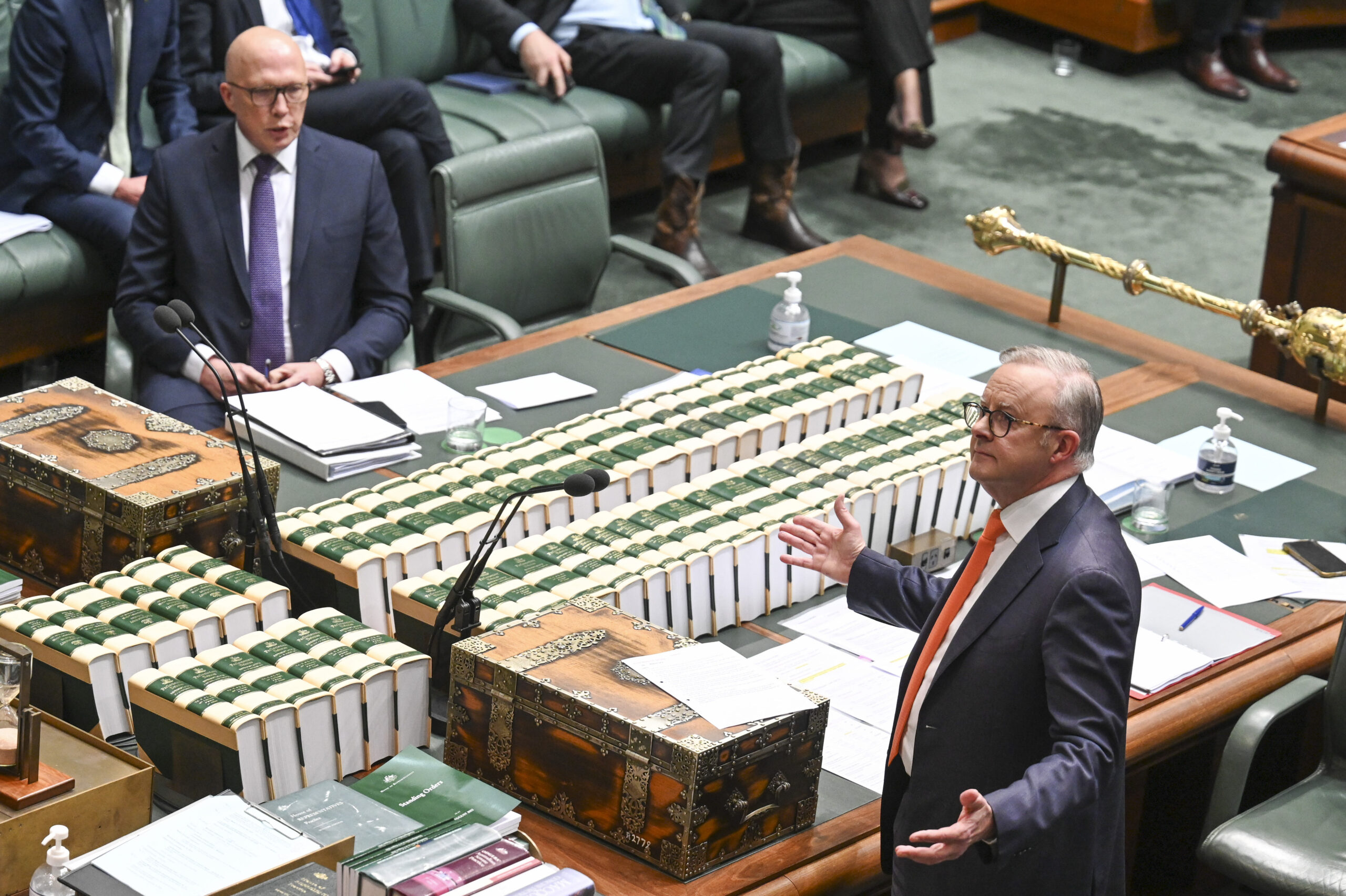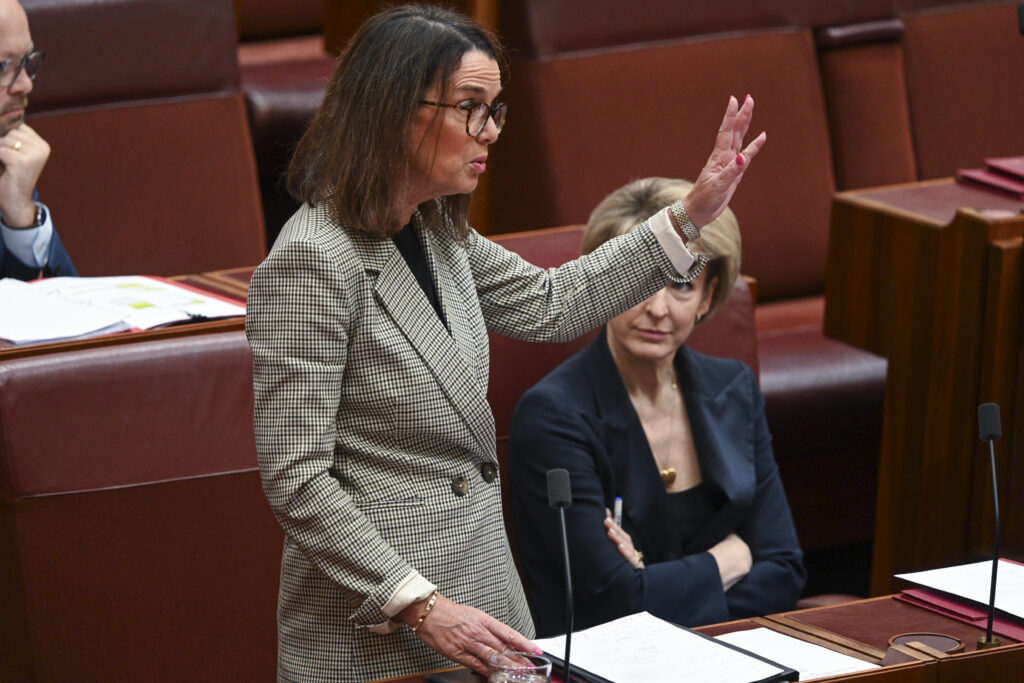Crunch time for new Aged Care Act

In a make or break week for aged care in Australia, the Albanese government is expected to strike a deal with the Coalition that will see self-funded retirees pay more to access aged care services.
Many in the sector are hoping this will make way for the introduction of the new, and much anticipated, Aged Care Act.
Aged care peak bodies and industry leaders have been eagerly awaiting news on two key matters.
Firstly, the implementation of the government's Aged Care Taskforce final recommendations, designed to overhaul the sector’s funding model for a system that is “fair and equitable for everyone in Australia.”
Secondly, three years on from the Royal Commission into Aged Care Quality and Safety, older Australians are still waiting on the government to enshrine their rights in legislation, in the form of an updated Aged Care Act.
For context, 14 months ago Aged Care Minister Anika Wells addressed the National Press Club with an agenda to replace the existing Aged Care Act of 1997 and ensure the aged care sector would remain financially sustainable.
Last week Australia’s aged care provider peak bodies joined forces in an urgent call to Parliament to prioritise the new Act.
In a joint statement, ACCPA, Anglicare Australia, Baptist Care Australia, Catholic Health Australia, and UnitingCare Australia said “older Australians deserve dignity, respect, and access to quality care. Only through bipartisan support can reform of this magnitude and of this importance to the Australian people progress.”
This week has been identified by many in the aged care sector as ‘crunch time’ for the Act, as fears mount that the legislation may be sidelined until the upcoming federal election.

What has caused the delays?
Negotiations between Labor and the Coalition over the new Act and implementation of Taskforce recommendations have been ongoing for months, with major sticking points including the introduction of criminal penalties for breaches of aged care standards (a Labor election promise).
It is understood that Labor has delayed tabling the bill until it receives confirmation of Coalition support.
According to The Australian on Tuesday, the Labor party provided the Coalition with excerpts of the proposed Act with the criminal penalties removed, reports. The story quotes Senator Anne Ruston, Shadow Minister for Health and Aged Care, as saying “the Coalition is not stopping the government from putting the bill into the parliament, and we have been publicly encouraging them to do so."
“We believe older Australians and their families also need to be brought along (on) this journey of reform,” she said.
The Prime Minister told ABC AM Radio that the government hopes to introduce the bill as soon as possible.
“We've been having good faith negotiations with people across the parliament on these issues because it's so important as our population ages,” the PM said.
“We want it to happen this year. We haven't waited, though. We haven't sat on our hands. What we've been doing is introducing pieces of legislation previously, but also changes that we've been able to make through regulation.
“This is about a once in a generation reform. We want, whether it's the youngest Australians through the action we're taking on early education, or older Australians who we want to get the dignity and care they deserve in their later years, we're looking after the interests of all Australians, the youngest and the oldest.”
Why is the legislation so important?
Aged and Community Care Providers Association (ACCPA) chief and Taskforce member Tom Symondson said reform is crucial for Australia's aging population.
“Chronic underfunding of aged care goes back decades, and has made the sector totally unsustainable,” he said.
“We know our population is ageing and we are going to need hundreds of thousands of new beds in the coming decades. However, the parlous financial state of the sector has meant that banks have been reluctant to lend the money needed to invest in growing our services. That means we’re building a fraction of the capacity we are going to need.”
“Older Australians are demanding and deserve higher levels of care and we need to be able to provide it for them. To do that we need a viable and stable sector, ready and able to grow, to deliver the care of the future.”
July's Residential Aged Care Projections Report from chartered accountancy firm StewartBrown declared "aged care is at the crossroads."
The report is focused on financial projections for the aged care sector if Taskforce reforms are not implemented and shows that regional and rural aged care facilities will be hit the hardest.
Key findings of the report revealed half of all residential aged care facilities in the country are currently operating at a loss, calculating aggregate losses over the past five years at approximately $5 billion.

Whiddon chief Chris Mamarelis has been navigating funding uncertainty during a time of increasing demand and labels the legislation delays as “disrespectful” and says they are “undermining for the sector’s confidence in reform processes.”
Mr Mamarelis said that while there has been improvements to the government funding available to aged care providers in the years following the Royal Commission, the sector is far from financially sustainable.
“We still are experiencing financial challenges,” he said.
“Particularly when we consider refurbishing older homes and the development of newer aged care services as well. The current funding model is not overly supportive of those sorts of strategies and … when you put this into a regional context, those challenges are amplified.”
For one of Whiddon’s regions, where they are the only aged care provider across an area of roughly 10,000 square kilometres, in north western NSW, it is critical that the doors remain open.
Mr Mamarelis said that there are millions of dollars' worth of improvements needed for regional and rural facilities but legislation delays means providers are unable to make informed investment decisions.
“You're essentially flying blind, and it's just not good practice to make these decisions without being able to generate a sustainable return. So you ultimately have to keep deferring and coming up with second grade solutions because of the risks and the lack of funding certainty.”
As October approaches providers are facing an increase to the care minutes responsibility, which will rise to 215 minutes per resident per day (including 44 minutes of direct RN care), pair this with delays to the indexation of the Residential Care Basic Subsidy and 24/7 RN supplement, and many providers are feeling immense financial pressures.
“[Whiddon] are making that investment now and that, for us, is in excess of $6 million, to bring those extra care minutes to fruition, and we're incurring those recruitment costs well in advance … and we have to rely on blind faith,” Mr Mamarelis said.
This week's Parliamentary sitting wraps today (August 22nd), after which the sector can expect further clarification on the timing of reforms.
Email: [email protected]







While it is important the new Aged Care Act should be enacted in a timely way, I am aghast that we have not included a mandatory minimum Certificate 3 qualification for all support workers, if care workers do not gain essential knowledge of how to provide quality care for older people with complex needs, then the abuse and neglect will continue, the Rights of older people will not be recognised or acted upon. While it all looks good on paper, what really matters is what’s happening on the ground. Providers should be compelled to train all care workers, but all they’re worried about is that is takes up too much time and it costs too much money. So much for valuing the quality of life of the residents in their facilities. It is also extremely concerning that providers will not be made accountable for contributing to the death of residents who have died in the past from neglect and abuse. What a sad indictment this is on our society that we place such little value on the lives of our senior citizens.